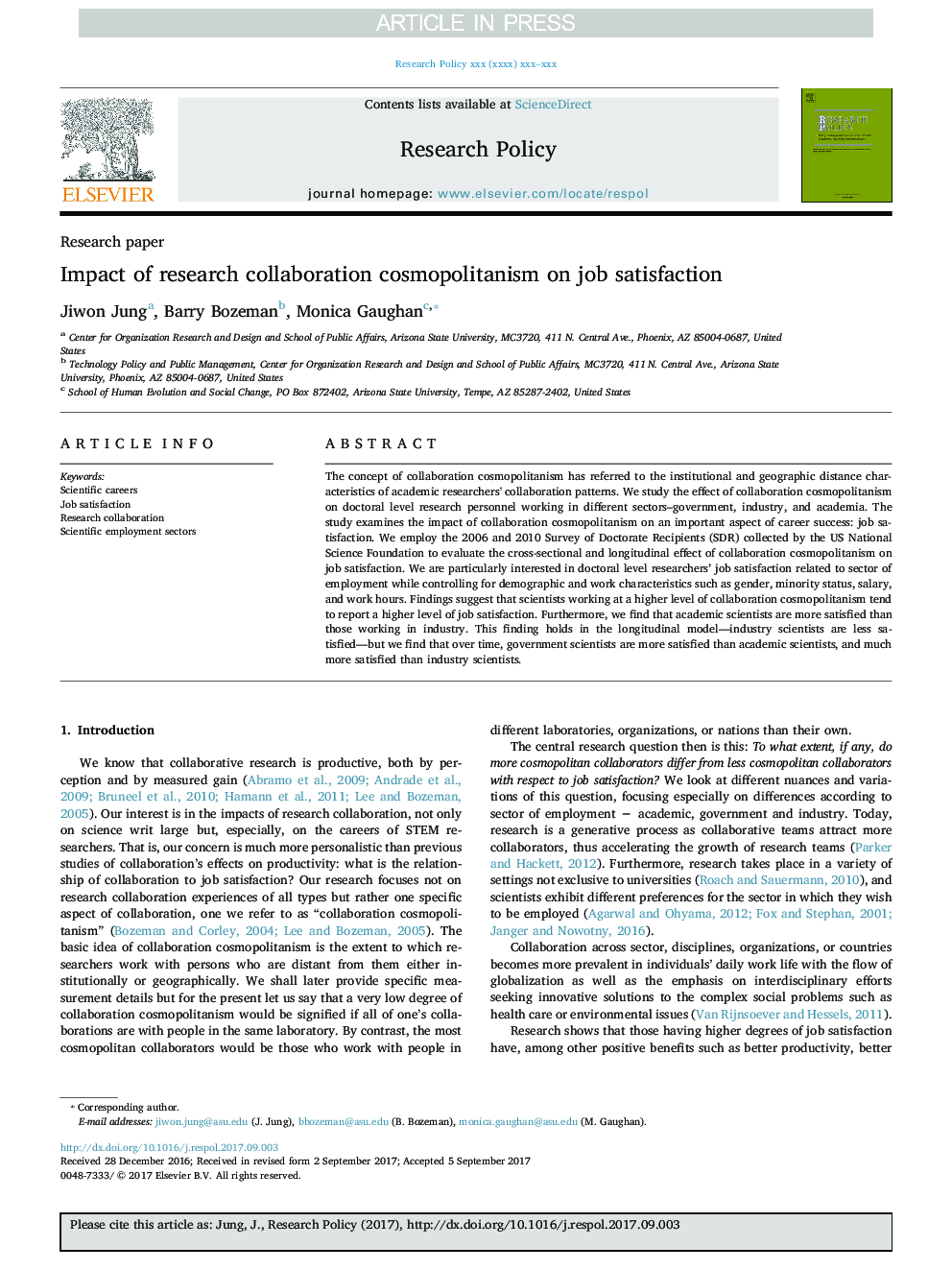| Article ID | Journal | Published Year | Pages | File Type |
|---|---|---|---|---|
| 5103832 | Research Policy | 2017 | 10 Pages |
Abstract
The concept of collaboration cosmopolitanism has referred to the institutional and geographic distance characteristics of academic researchers' collaboration patterns. We study the effect of collaboration cosmopolitanism on doctoral level research personnel working in different sectors-government, industry, and academia. The study examines the impact of collaboration cosmopolitanism on an important aspect of career success: job satisfaction. We employ the 2006 and 2010 Survey of Doctorate Recipients (SDR) collected by the US National Science Foundation to evaluate the cross-sectional and longitudinal effect of collaboration cosmopolitanism on job satisfaction. We are particularly interested in doctoral level researchers' job satisfaction related to sector of employment while controlling for demographic and work characteristics such as gender, minority status, salary, and work hours. Findings suggest that scientists working at a higher level of collaboration cosmopolitanism tend to report a higher level of job satisfaction. Furthermore, we find that academic scientists are more satisfied than those working in industry. This finding holds in the longitudinal model-industry scientists are less satisfied-but we find that over time, government scientists are more satisfied than academic scientists, and much more satisfied than industry scientists.
Related Topics
Social Sciences and Humanities
Business, Management and Accounting
Business and International Management
Authors
Jiwon Jung, Barry Bozeman, Monica Gaughan,
